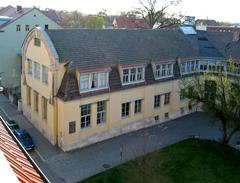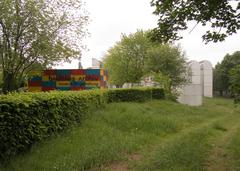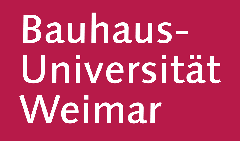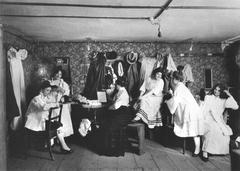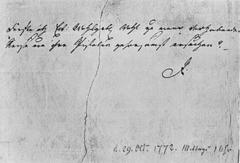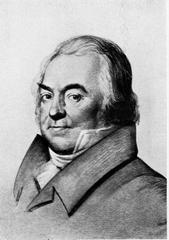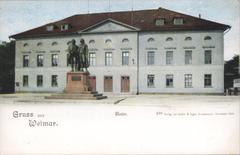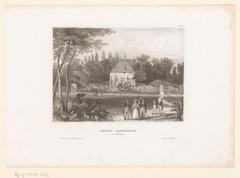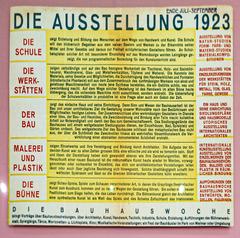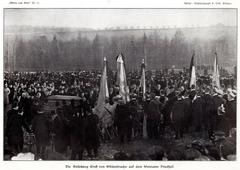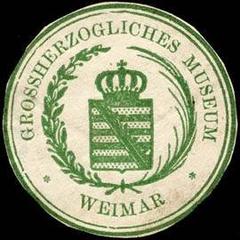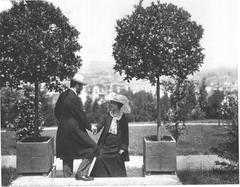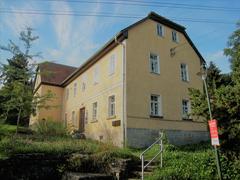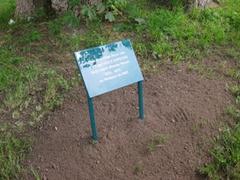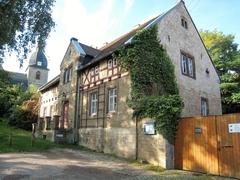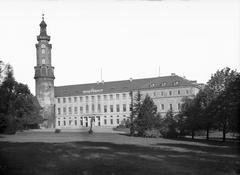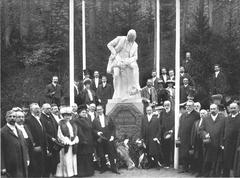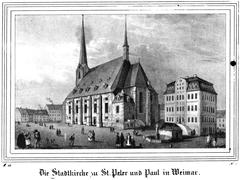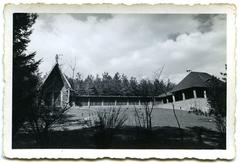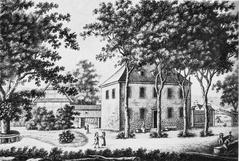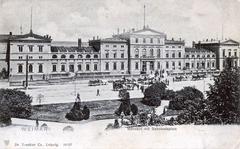Albert Schweitzer Memorial And Meeting Place Foundation Weimar
Albert Schweitzer Memorial Weimar: Visiting Hours, Tickets, and Travel Guide
Date: 14/06/2025
Introduction
The Albert Schweitzer Memorial and Meeting Place Foundation in Weimar, Germany, stands as a profound tribute to Dr. Albert Schweitzer (1875–1965)—theologian, philosopher, physician, musician, and Nobel Peace Prize laureate. Located in the heart of Weimar, a city famous for its cultural and intellectual legacy, the memorial not only honors Schweitzer’s humanitarian work and ethical philosophy but also operates as a vibrant center for dialogue, education, and intercultural exchange. Through exhibitions, lectures, concerts, and educational programs, visitors can immerse themselves in Schweitzer’s enduring legacy of “Reverence for Life.”
Established in 1968, the memorial is recognized as the world’s first monument dedicated to Schweitzer. Situated among Weimar’s other historic landmarks—including monuments to Goethe, Schiller, and Liszt—the site reinforces the city’s tradition of fostering humanistic values. The complex incorporates the historic Musäushaus, which houses permanent and temporary exhibitions, and serves as a base for special events, especially in commemorative years like 2025, marking Schweitzer’s 150th birthday.
This guide presents a detailed overview of the Albert Schweitzer Memorial, covering its historical significance, visitor information, the 2025 Jubilee events, and practical travel tips for a meaningful visit. For up-to-date information, consult the official Weimar tourism website and the Albert Schweitzer Memorial’s dedicated pages (Weimar.de, Albert Schweitzer Jubilee 2025).
Table of Contents
- Origins and Historical Context
- Design and Symbolism
- Visiting Hours and Tickets
- Accessibility and Travel Tips
- Nearby Attractions
- Special Events and Guided Tours
- Exhibition Highlights
- 2025 Jubilee Program
- Practical Visitor Information
- Frequently Asked Questions (FAQ)
- Conclusion and Recommendations
- Sources
Origins and Historical Context
The Founding of the Memorial
The Albert Schweitzer Memorial in Weimar was established in 1968 during the German Democratic Republic (DDR) era, just three years after Schweitzer’s passing. As the first monument of its kind globally, its founding reflected an effort to honor Schweitzer’s universal values and humanitarian legacy at a time when Weimar sought to highlight its reputation as a city of enlightenment and culture. The Christian Democratic Union (CDU) of the DDR played a key role in commissioning the memorial, emphasizing Schweitzer’s message of peace and dignity as transcending political divides (Weimar.de).
Weimar’s Humanitarian Heritage
Weimar’s rich intellectual history—home to Goethe, Schiller, and the Bauhaus—provides a fitting context for the memorial. The city’s tradition of nurturing figures who have shaped European culture and ethics aligns closely with Schweitzer’s humanitarian ideals.
Design and Symbolism
The memorial’s outdoor monument, unveiled in 1968, depicts Schweitzer in his iconic doctor’s coat and pith helmet, standing alongside an African mother and children. This imagery powerfully symbolizes his medical mission in Lambaréné, Gabon, and his philosophy of “Reverence for Life.” The monument is strategically placed among other tributes to Weimar’s luminaries, reinforcing the city’s commitment to humanistic and cultural values (organpromotion.org, thuecat.org).
Visiting Hours and Ticket Information
- Outdoor Monument: Accessible year-round during daylight hours, free of charge.
- Musäushaus Exhibitions: Tuesday to Sunday, 10:00 AM – 5:00 PM. Closed Mondays and select holidays. Check for seasonal or event-related changes on the official website.
- Admission Fees: Entry to the outdoor monument is free. Musäushaus exhibitions and guided tours: €5 for adults, with discounts for students, seniors, and groups. Children under 12: free.
Tickets can be purchased onsite or reserved in advance, especially during special events or the 2025 Jubilee (whichmuseum.com).
Accessibility and Travel Tips
- Location: Kegelplatz, opposite the north wing of the Stadtschloss, central Weimar. Easily accessible on foot, by public transport, or by bicycle.
- Public Transport: Nearest bus stop—Weimar Zentrum. The main train station is a 15-minute walk away.
- Parking: Limited spaces nearby; public transport recommended during peak times.
- Accessibility: The outdoor monument is barrier-free. The Musäushaus offers step-free access where possible, though some areas may have limitations due to the building’s age. Contact the foundation in advance for tailored support.
Nearby Attractions
Combine your visit to the Albert Schweitzer Memorial with Weimar’s other significant landmarks:
- Goethe National Museum
- Duchess Anna Amalia Library
- Bauhaus Museum
- Stadtschloss (City Palace)
- Buchenwald Memorial
Consider purchasing the Weimar Card for access to multiple sites and public transport.
Special Events and Guided Tours
The foundation regularly hosts lectures, concerts, and workshops. Special events are planned throughout 2025 for the Schweitzer Jubilee, including organ concerts, thematic exhibitions, and award ceremonies (albert-schweitzer-heute.de).
Guided tours are available in German, English, and French, offering insight into Schweitzer’s life, philosophy, and the memorial’s significance. Educational workshops cater to schools, families, and diverse audiences.
Exhibition Highlights
Musäushaus Permanent Exhibitions
- Biographical Displays: Artifacts and documents tracing Schweitzer’s journey from Alsace to Gabon.
- Lambaréné Hospital Exhibit: Medical instruments, correspondence, and multimedia presentations.
- Nobel Peace Prize Commemoration: Documents and replicas celebrating Schweitzer’s 1952 award.
- Interactive Philosophy Displays: Engage with Schweitzer’s ethical teachings through multimedia.
Temporary Exhibitions
Regularly changing displays connect Schweitzer’s ideals to contemporary issues like global health and sustainability (thueringen-entdecken.de).
2025 Jubilee Program
Event Highlights
- Weimarer Orgelsommer 2025: Organ concerts at Stadtkirche St. Peter & Paul (Herderkirche), featuring international performers and tributes to Schweitzer’s musical legacy (albert-schweitzer-heute.de).
- Lectures and Readings: Topics include Schweitzer’s ethical philosophy and humanitarian work.
- International Albert Schweitzer Organ Competition: October 8–12, 2025, with competitors from across Europe.
- Community Events: Open-air concerts, youth programs, and the awarding of the Albert Schweitzer Medal 2025.
Most events are free; some require advance registration or tickets. Check the official Jubilee portal for details.
Practical Visitor Information
- Restrooms and Facilities: Available on site.
- Souvenirs: A small shop sells books, postcards, and educational materials.
- Photography: Permitted outdoors and in most exhibition areas (no flash or tripods indoors).
- Multilingual Resources: Audio guides and brochures in German, English, and French.
Frequently Asked Questions (FAQ)
Q: What are the regular visiting hours?
A: Tuesday to Sunday, 10:00 AM – 5:00 PM. Closed Mondays and some holidays.
Q: Is there an admission fee?
A: Outdoor monument: free. Indoor exhibitions/guided tours: €5 for adults; discounts apply.
Q: Is the memorial accessible for visitors with disabilities?
A: Yes—outdoor areas are barrier-free; most indoor spaces are accessible. Contact ahead for specific needs.
Q: Are guided tours available?
A: Yes—book in advance for groups or special language requirements.
Q: How do I get there?
A: Centrally located in Weimar; accessible by foot, public transport, or car. See above for details.
Conclusion and Recommendations
The Albert Schweitzer Memorial in Weimar offers a unique and meaningful experience for visitors interested in history, ethics, music, and humanitarian ideals. The 2025 Jubilee will feature an enriched program of events celebrating Schweitzer’s legacy. Combine your visit with other Weimar attractions for a comprehensive cultural journey.
Plan ahead:
- Check the official website and Weimar.de for the latest updates.
- Reserve tickets for special events during the Jubilee.
- Download available audio guides or virtual tours to enhance your visit.
Explore, reflect, and be inspired by Schweitzer’s message of peace and reverence for life in a city where history, art, and humanitarian spirit converge.
